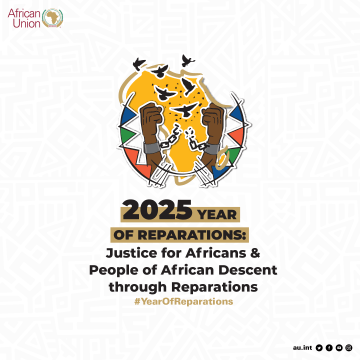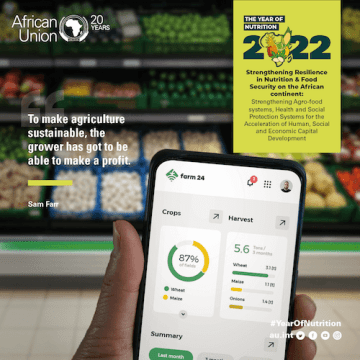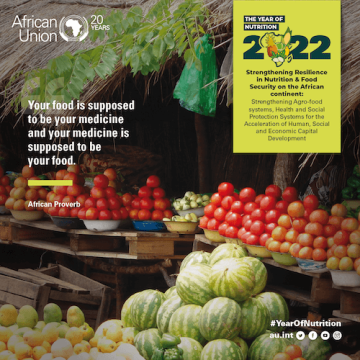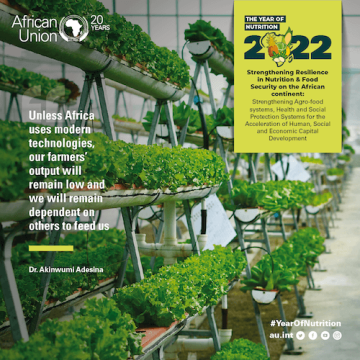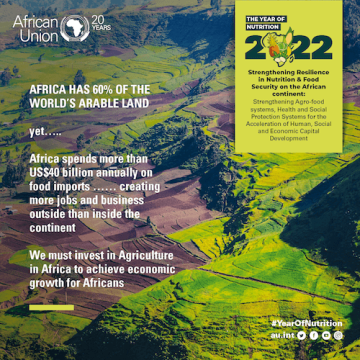New York, USA – 22 September 2025 – The 2025 Forward Africa Leaders Symposium (FALS), convened at the iconic Nasdaq MarketSite in Times Square, New York, brought together African Heads of State, policymakers, investors and innovators representing both Africa and its diaspora to share experiences and foster action as well as mutually acceptable strategies that can be implemented to drive Africa’s digital transformation forward.
The symposium was convened by Forward Africa Leaders Symposium in partnership with the African Peer Review Mechanism (APRM) to better align governance, innovation and investment trends across Africa, to accelerate inclusive growth and forge an African Digital Single Market by 2030.
The event was graced by high-profile leaders in government, technology and inter-governmental organisations. With a focus on building the governance frameworks needed to underpin digital transformation and innovation in Africa, the leaders discussed how their respective countries and regions are approaching Africa’s digital future.
H.E. Samuel Matekane, Prime Minister of the Kingdom of Lesotho, highlighted that digital transformation acts as both a growth pathway and a mechanism for inclusive development. He pointed out that “in Lesotho, we are determined to achieve both, and are already making real progress with near-universal connectivity and world-leading work to harness digital ID, payments and data governance for social and economic empowerment.”
On behalf of H.E. President Julius Maada Bio, Hon. Dr. David Moinina Sengeh, Chief Minister and Chief Innovation Officer of Sierra Leone, reaffirmed Sierra Leone’s commitment to Africa’s collective digital journey. He indicated that his country has aligned its national strategies with the 2022 AU Data Policy Framework, which calls for a shared continental data space to empower countries, improve lives, and drive equitable development.
H.E. Inkosi Mzamo Buthelezi, Minister for the Public Service and Administration of South Africa, emphasized that data powers a digitally integrated Africa. He reaffirmed that South Africa's continental vision for development extends beyond its national borders. “Our success, he said, depends on collective efforts across the continent and we cannot achieve our goals in isolation, but only through unified efforts and broad-based participation across Africa.”
H.E. Amb. Selma Malika Haddadi, Deputy Chairperson of the African Union Commission (AUC), issued a rallying call for harmonised policy frameworks. She declared that “the question before us is not whether Africa will join the digital revolution; it is whether Africa will lead it on our own terms.” She indicated that by 2030, Africa aims to “establish an African Digital Single Market that improves the lives of our people, accelerates regional integration, and ensures that Africa is not just a consumer of digital technologies but also a creator and innovator.”
Amb. Marie-Antoinette Rose-Quatre, CEO of the APRM Continental Secretariat, asserted that technology must serve the people and strengthen democratic institutions. In her own words, “governance is about people and their dreams for a better tomorrow. Technology is the bridge that connects those dreams to reality. The rendezvous between good governance and technology is of paramount importance to Africa’s continued creativity, resilience, and security.”
She also drew attention to the transformative role of Artificial Intelligence (AI), citing the Albanian government’s symbolic appointment of an AI as the country’s Digital Minister for Public Procurement. “For Africa, this is a powerful reminder that frontier technologies can be used to leapfrog bureaucracies and drive new forms of integrity,” she said.
According to FALS Executive Director, Mrs. Hannah Awuku, the “Forward Africa Leaders Symposium is more than a symposium. It is a movement dedicated to advancing Africa’s digital ecosystem through strategic partnerships, bold investments, and inclusive innovation.”
Bringing an international dimension to the discussion, Deputy Mayor of New York, Mrs. Tiffanny Raspberry stressed that digital transformation was a topic of global significance. She also noted efforts being made in the city to foster access and inclusion, offering free WiFi in marginalised spaces such as homeless shelters to enable communities of colour to access the tools for effective participation in the digital world being one of such initiatives.
Mr. Ralph Mupita, MTN Group President and CEO, issued a stark warning about the risks of inaction, stressing the urgency for African governments to act decisively: “We are at a particular echelon of technological evolution, and if we are not involved, we will be left behind. This is a prerequisite for unlocking Africa’s prosperity and growth”, he said. Mr. Mupita also shared insights about MTN's development in Africa since its creation in the early 1990s when its first business plan aimed to connect one million South Africans.
Mr. Alex Apau Dadey, Executive Chairman of Ghana’s KGL Group and former head of the Ghana Investment Promotion Centre, stressed the importance of recognising the private sector as the true engine of wealth creation. Drawing on decades of experience across continents, Dadey said that “governments on their own cannot drive transformation, but sadly, private enterprises that do are most often treated as afterthoughts in national strategies.”
Mr. Samaila Zubairu, President and CEO of the Africa Finance Corporation (AFC), emphasized that Africa’s future would not rely solely on commodities or traditional industries, but rather on the continent’s ability to build a vibrant digital economy. Digital economy, he said, was not optional but essential for Africa’s development. He expressed confidence that, with appropriate governance and adequate capital, the continent had the potential to leapfrog into a digital future.
Participants agreed that Africa’s digital transformation must now shift from declarations to measurable actions. Central to this shared agenda is the harmonisation of frameworks on data governance, cybersecurity, digital identity, and artificial intelligence to operationalise the African Union’s goal of a Digital Single Market by 2030.
For media inquiries or further information, please contact the APRM Continental Secretariat at info@aprm-au.org.
@APRMorg – X




